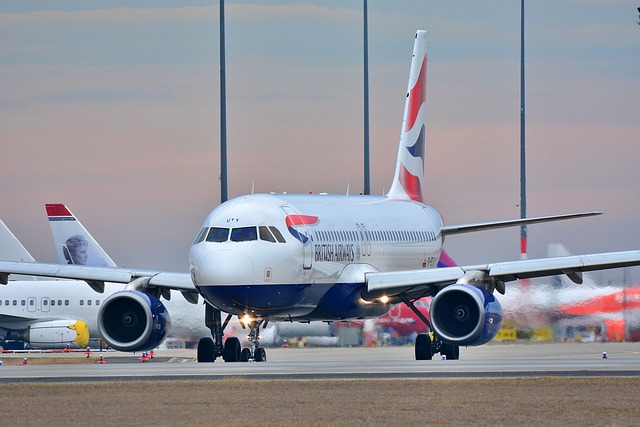English Proficiency and Its Impact on Aviation Careers in Belgium
In Belgium, the aviation sector is expanding, and proficiency in English can significantly enhance career pathways within this field. Many may not realize the various roles available, from flight operations to ground support. Understanding the job conditions and expectations is essential for those interested in pursuing a career in aviation.

The aviation industry in Belgium represents a significant sector of the country’s economy, offering diverse career opportunities from pilots and air traffic controllers to maintenance technicians and cabin crew. At Brussels Airport alone, thousands of professionals work together to ensure safe and efficient air travel. However, one qualification stands above many others in importance: English language proficiency. This requirement transcends national boundaries and forms the backbone of international aviation communication standards.
Understanding the Aviation Industry Landscape in Belgium
Belgium occupies a strategic position in European aviation, with Brussels Airport serving as a major hub for both passenger and cargo operations. The country hosts several airlines, including Brussels Airlines, and benefits from proximity to European Union institutions. The Belgian aviation sector employs approximately 60,000 people directly and indirectly, contributing significantly to the national economy.
The industry’s structure in Belgium encompasses commercial airlines, air traffic management through Skeyes (formerly Belgocontrol), maintenance organizations, flight schools, and various support services. This diverse ecosystem demands professionals with varied skills, but across all specializations, English language capability remains a constant requirement.
With its central location in Europe, Belgium also serves as home to numerous aviation training facilities that prepare candidates for careers throughout the continent and beyond. These institutions have adapted their curricula to emphasize English language training alongside technical skills.
The Importance of English Proficiency in Aviation Careers
English has been the designated language of international aviation since 1951 when the International Civil Aviation Organization (ICAO) recognized the need for a standardized communication system. This standardization is crucial—miscommunication in aviation can have catastrophic consequences.
For Belgian aviation professionals, English proficiency is assessed according to the ICAO Language Proficiency Requirements, which evaluate six aspects: pronunciation, structure, vocabulary, fluency, comprehension, and interactions. The scale ranges from Level 1 (Pre-elementary) to Level 6 (Expert), with Level 4 (Operational) being the minimum standard for licensing.
Pilots and air traffic controllers face the most stringent requirements. They must demonstrate the ability to communicate clearly in routine situations, manage unexpected events, and resolve misunderstandings quickly. A pilot with limited English skills may struggle to understand clearances or weather updates, potentially compromising safety.
Technical staff, including maintenance engineers, must comprehend complex manuals and documentation typically available only in English. Similarly, cabin crew need sufficient language skills to assist international passengers and handle emergency situations effectively.
Navigating Roles and Conditions in the Aviation Sector
The Belgian aviation job market presents varying conditions depending on specialization. Pilots typically undergo extensive training, including theoretical knowledge courses and flight training, all conducted predominantly in English. The investment in becoming a commercial pilot can be substantial, with training costs often exceeding €100,000.
Air traffic controllers in Belgium work primarily through Skeyes, which requires candidates to pass rigorous selection processes including English language assessments. The training program spans approximately two years and places heavy emphasis on communication skills.
Aviation maintenance technicians must obtain certification under European Union Aviation Safety Agency (EASA) regulations, which require the ability to read and understand technical documentation in English. Many maintenance organizations in Belgium also operate in multilingual environments, making English proficiency advantageous for career advancement.
Flight dispatchers, ground handling staff, and administrative personnel all benefit from strong English skills, as they frequently interact with international colleagues and passengers. The level of proficiency required may vary by position, but basic communicative competence is generally expected.
English Language Training Options for Aviation Professionals
Belgian aviation aspirants have several pathways to develop the necessary English skills. Specialized aviation English courses are available through flight schools, language institutes, and online platforms. These programs focus on aviation terminology, radiotelephony phraseology, and scenario-based training.
Brussels Airport and other aviation employers often provide in-house language training for staff, recognizing the operational importance of strong communication skills. These programs typically combine general English improvement with aviation-specific content.
Higher education institutions offering aviation-related degrees, such as Hogeschool PXL’s Aviation program, incorporate English language components into their curricula. Some programs are delivered entirely in English, providing students with immersive language experience alongside technical knowledge.
For self-directed learners, numerous resources exist, including ICAO-compliant study materials, aviation English applications, and practice tests. Regular exposure to aviation English through listening to air traffic control communications (available online) can also prove beneficial for improving comprehension skills.
Certification and Testing Requirements for Aviation English
In the Belgian aviation context, formal certification of English proficiency is mandatory for certain roles. Pilots and air traffic controllers must undergo standardized testing aligned with ICAO requirements, typically every 4-6 years depending on their achieved level.
The most widely recognized tests include the ELPAC (English Language Proficiency for Aeronautical Communication) and TEA (Test of English for Aviation). These assessments evaluate both general English ability and specific aviation communication skills through listening comprehension, oral interaction, and scenario-based exercises.
Testing centers in Belgium include facilities at Brussels Airport and specialized language assessment organizations. The cost of certification typically ranges from €150 to €400, depending on the test type and testing center.
| Testing Option | Provider | Cost Estimation | Validity Period |
|---|---|---|---|
| ELPAC | EUROCONTROL | €200-€300 | 4-6 years |
| TEA | Mayflower College | €250-€350 | 4-6 years |
| ICAO Aviation English | Local flight schools | €150-€250 | 4-6 years |
| RELTA | RMIT English Worldwide | €300-€400 | 4-6 years |
Prices, rates, or cost estimates mentioned in this article are based on the latest available information but may change over time. Independent research is advised before making financial decisions.
Career Advancement Through Enhanced Language Skills
Beyond meeting minimum requirements, superior English proficiency can significantly enhance career prospects in Belgian aviation. Professionals with excellent communication skills often find themselves on faster promotion tracks and with access to international opportunities.
Airlines operating internationally, such as Brussels Airlines, value staff who can interact confidently with global passengers and partners. For pilots, strong English skills may open doors to employment with major carriers around the world, where competition for positions remains intense.
In management and administrative roles, the ability to negotiate, present, and collaborate in English becomes increasingly important as professionals advance in their careers. Industry conferences, training programs, and networking events frequently operate in English, making language proficiency essential for professional development.
The aviation industry’s continuing globalization means that Belgian professionals with outstanding English skills will likely maintain a competitive advantage in the job market. As aviation technology evolves and operations become more complex, clear communication becomes even more critical to maintaining safety and efficiency standards.




